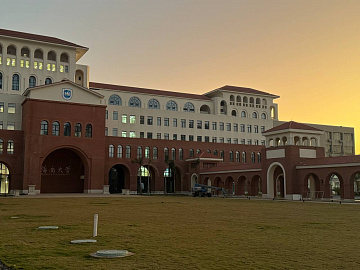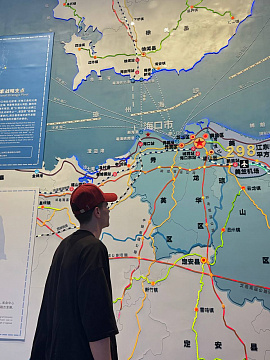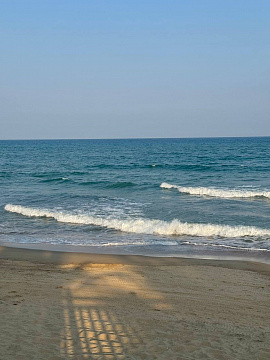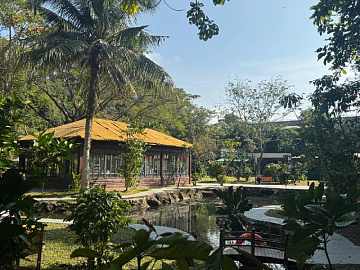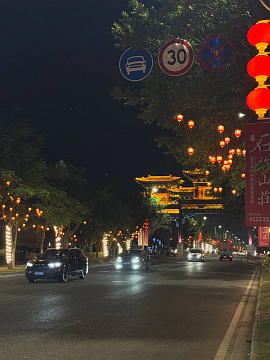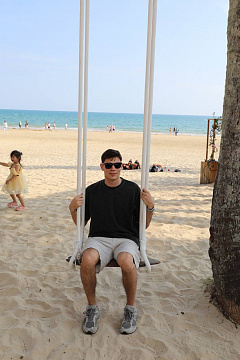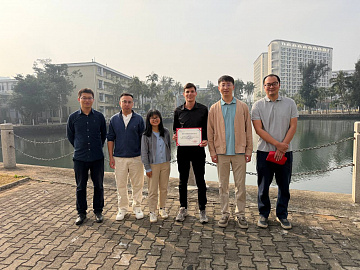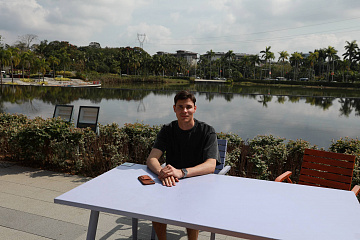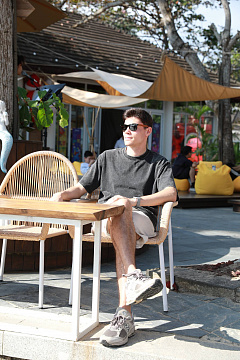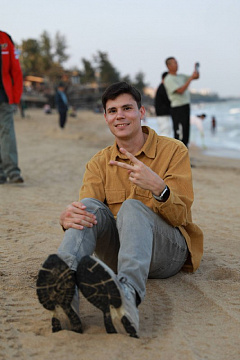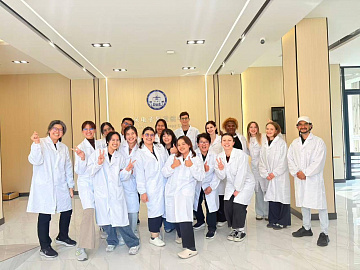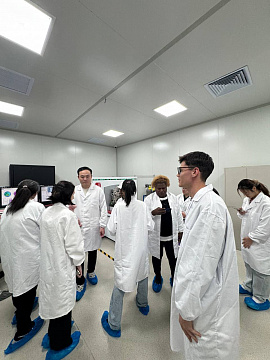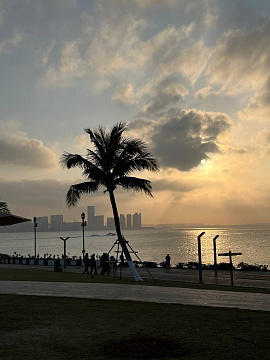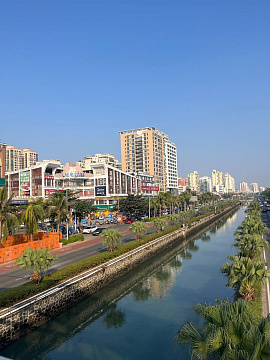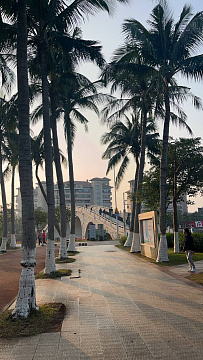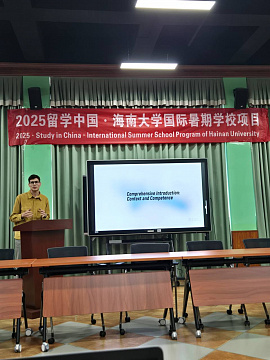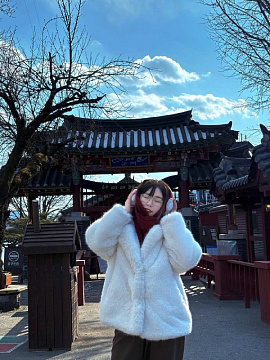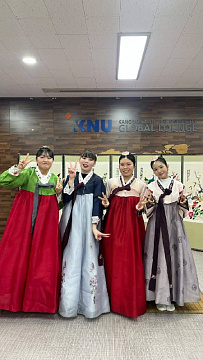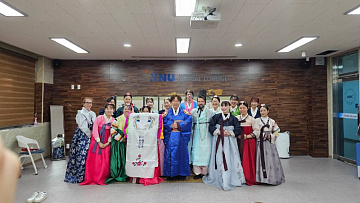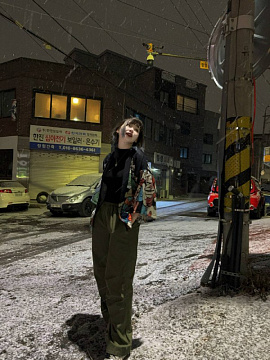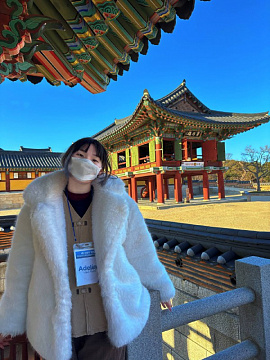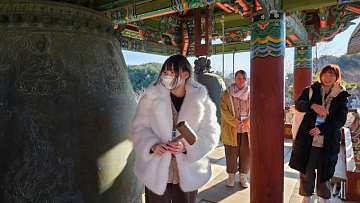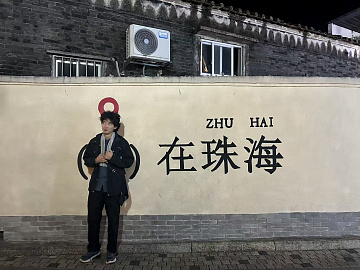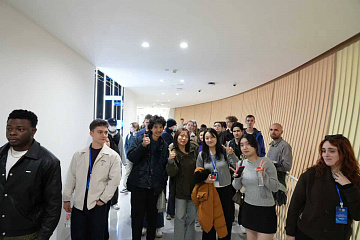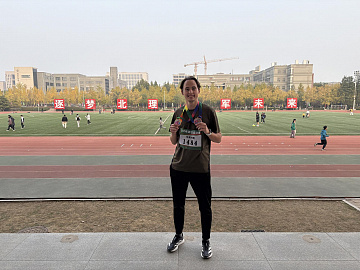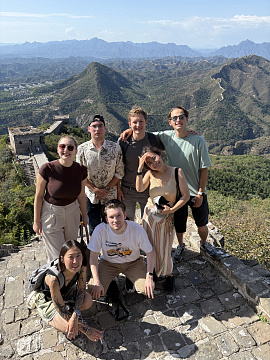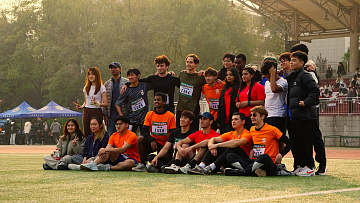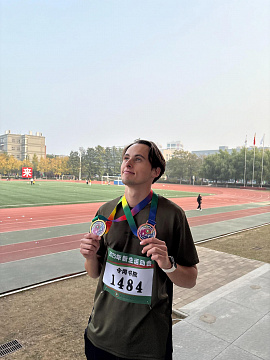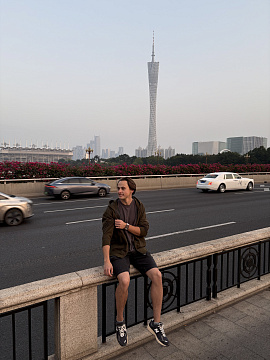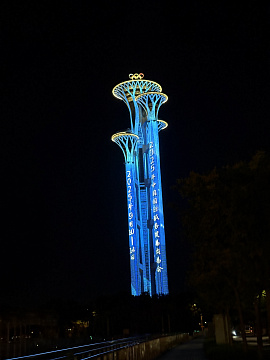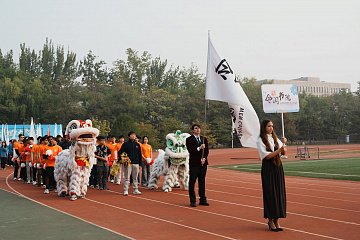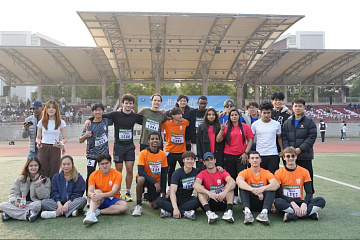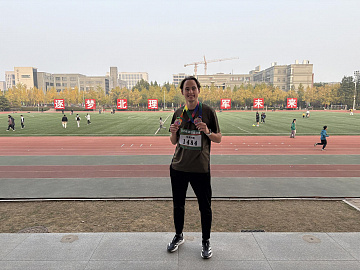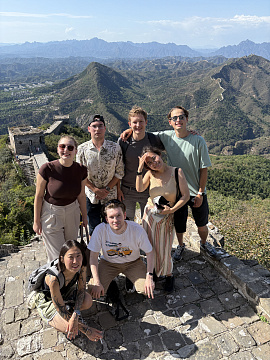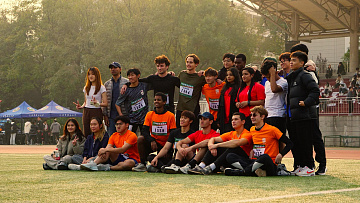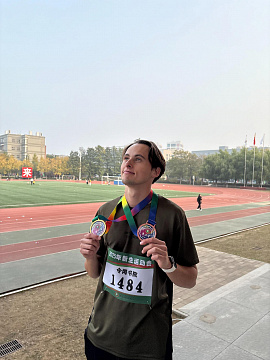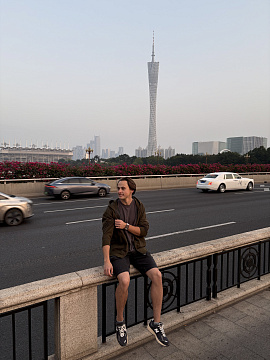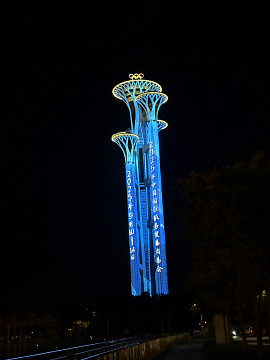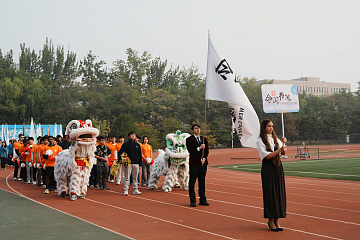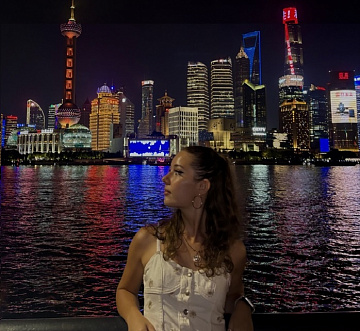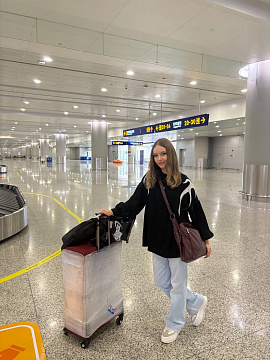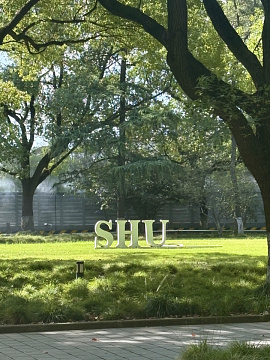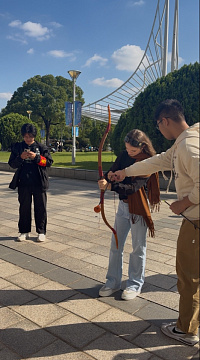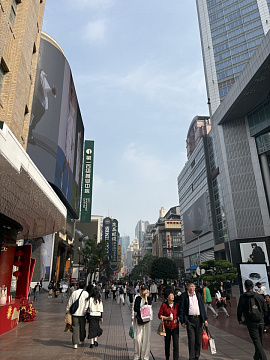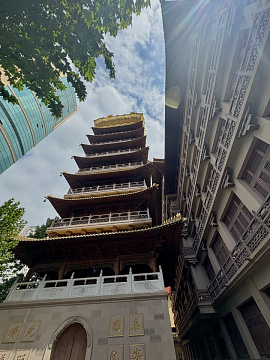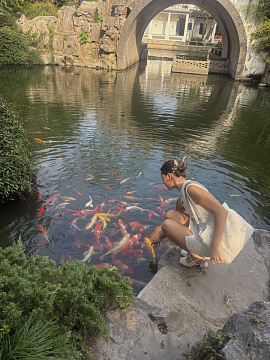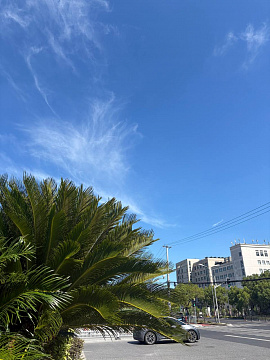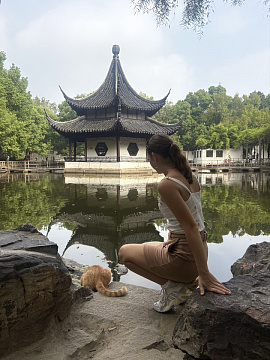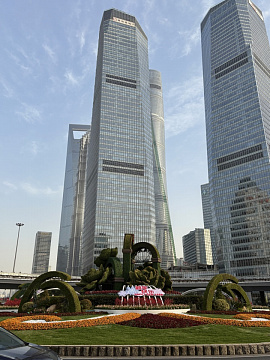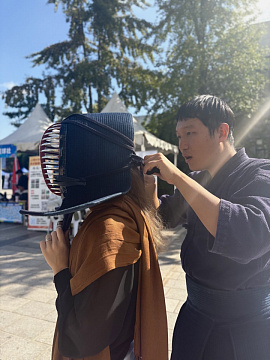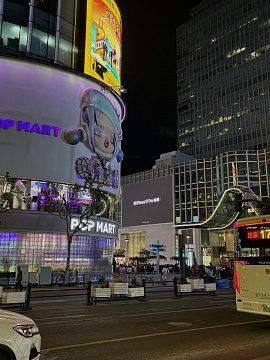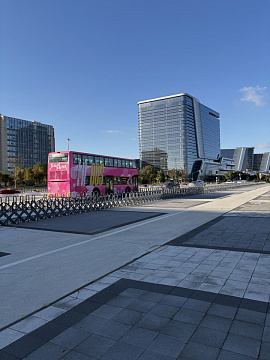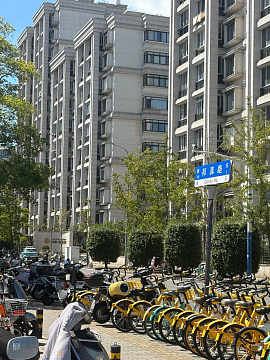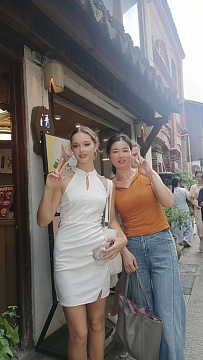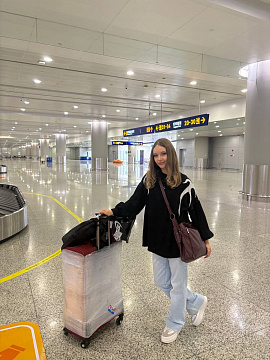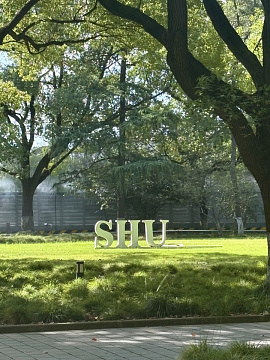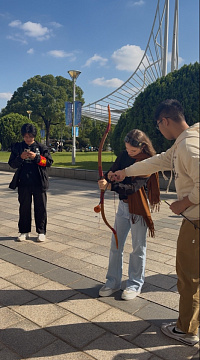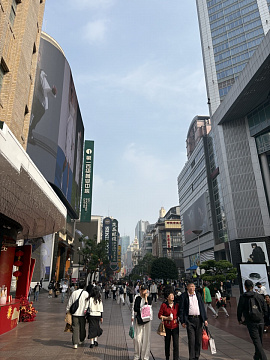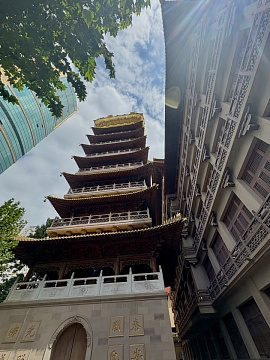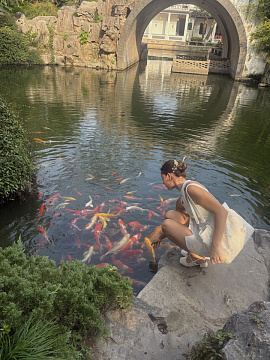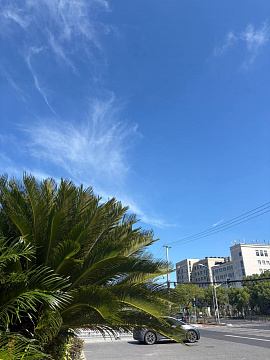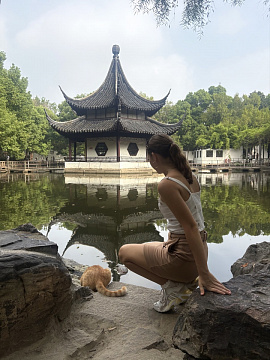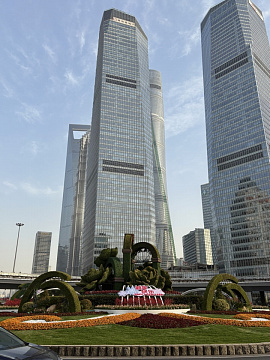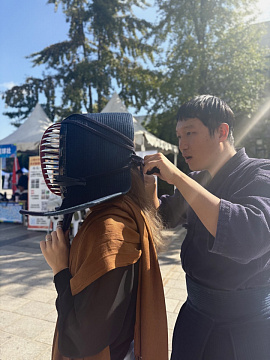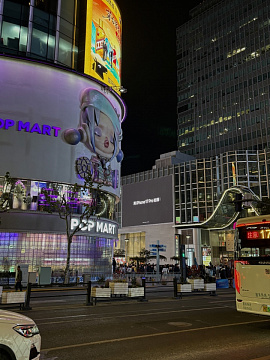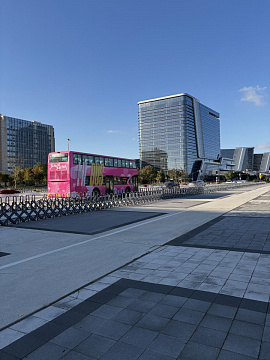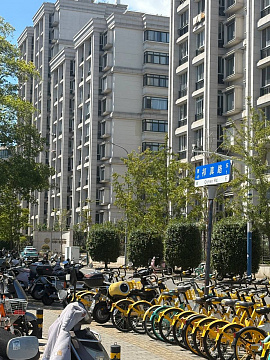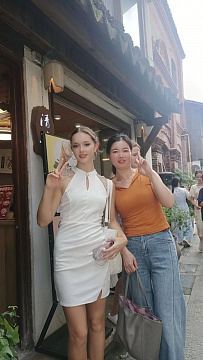
What difficulties did you have at the stages of preparing for the internship? What advice and recommendations can you give to future participants of the academic mobility program?
The main difficulty was the need to quickly prepare an English CV for the selection process. Advice: I recommend having an up-to-date and well-structured resume ready in advance (at least in Russian). This will save considerable time during the application process and ensure you meet strict deadlines.
Describe the process of obtaining a visa. Your advice for future participants of the academic mobility program.
A visa was not required as the duration of the program was less than 30 days. For citizens of the Russian Federation, a visa-free regime applies for entry into China (specifically Hainan) for short-term programs of this length.
Upon arrival, I experienced temporary difficulties with internet access, as the campus Wi-Fi was not immediately available. Advice: I strongly recommend setting up an eSIM in advance. This will ensure you have a stable connection during the first few days before you receive access to the university network.
Specify your expenses related to participation in an internship abroad (visa costs, cost of flight / travel to the place of internship, registration fees / taxes / deposits in the host organization, policy / medical services, if used, public transport, meals, accommodation. Your tips for cutting costs.
The majority of expenses, including airport transfers, accommodation, meals, and medical insurance, were covered by the host organization. My primary personal expense was the round-trip flight (including baggage), which cost approximately 70,000 rubles. The high price was due to the urgency of the purchase, as I was given only 24 hours to buy the tickets after receiving the official invitation letter.

This internship motivated me to keep pushing myself out of my comfort zone and trying new things! Before, I thought my English level wasn't high enough to express my thoughts freely, let alone learn another language through it. But as the experience showed, all that matters is practice. I want to visit as many countries and cities as possible, explore different cultures, and interact with diverse people.
What difficulties did you have at the stages of preparation for the internship? What tips and recommendations can you give to future participants of the academic mobility program?
Overall, my main difficulties were financial, specifically related to the challenge of paying for the program itself. I recommend using various platforms that accept foreign cards for payments. Also, take as much cash as possible, because in South Korea there can be issues paying with certain cards, like in my case with a UnionPay card.
Describe the process of obtaining a visa. Your advice for future participants of the academic mobility program.
In my case (for a 2-week internship), it's better to apply for KETA. It's processed quickly, and the response comes within 48 hours at most. Plus, the application is much cheaper than a visa.
What difficulties did you encounter upon arrival at the host foreign organization? Your advice to future participants of the academic mobility program.
My personal difficulties consisted of initially struggling to formulate my thoughts correctly in English, which often led to misunderstandings. I also want to mention that the cuisine is indeed very different from ours. For someone like me, who can't eat spicy food, it was challenging to find suitable options for myself. Additionally, it's worth noting that before the trip, it's important to install a certain set of apps specifically for living in Korean cities, such as KakaoMap, KakaoTalk, and others.
Specify your expenses related to participation in an internship abroad (visa costs, cost of flight / travel to the place of internship, registration fees / taxes / deposits in the host organization, policy / medical services, if used, public transport, meals, accommodation. Your tips for cutting costs.
KETA: approx. 500 RUB
Round-trip flight: 65,000 RUB
Transportation card (2 weeks): approx. 1,500 RUB
Mobile data (30 GB): approx. 2,000 RUB

What difficulties did you have at the stages of preparation for the internship? What tips and recommendations can you give to future participants of the academic mobility program?
I did not encounter any significant difficulties during the preparation stage. The only important point is to carefully check airline tickets before purchasing them. In my case, I made a mistake with the choice of airports, which required exchanging tickets to ensure I would make my connecting flight. I recommend that future participants double-check their routes and carefully consider transfer times.
Describe the process of obtaining a visa. Your advice for future participants of the academic mobility program.
I applied for an X2 visa, which took approximately one week to process and cost 2,500 rubles. I strongly recommend applying for the visa in advance. Despite the existence of a visa-free regime between Russia and China, obtaining an X2 visa helps confirm one’s student status and avoid potential issues or questions during passport control.
What difficulties did you encounter upon arrival at the host foreign organization? Your advice to future participants of the academic mobility program.
No difficulties arose upon arrival. A transfer from the airport to the campus was organized, which significantly simplified the accommodation process. Whenever possible, I recommend using the transfer service, as taxi fares can be quite expensive due to additional charges for toll roads, in addition to the taxi service itself.
Specify your expenses related to participation in an internship abroad (visa costs, cost of flight / travel to the place of internship, registration fees / taxes / deposits in the host organization, policy / medical services, if used, public transport, meals, accommodation. Your tips for cutting costs.
Visa expenses (X2) — 2,500 rubles.
Round-trip airfare — approximately 67,000 rubles.
Registration deposit — 100 yuan (refundable).
Food — approximately 80 yuan per day on average.
Taxi — about 25 yuan per ride.
Public transportation — about 1 yuan per ride.
Accommodation was provided free of charge.
As advice on reducing expenses, I would recommend sharing taxi rides with friends and planning in advance for additional spending on leisure activities and city entertainment.

What difficulties did you have at the stages of preparation for the internship? What tips and recommendations can you give to future participants of the academic mobility program?
The difficulties were mainly related to filling out documents and passing a medical examination. It is necessary to carefully fill out all the documents and keep track of the deadlines. Moreover, it is best to take a medical examination at a private clinic.
Describe the process of obtaining a visa. Your advice for future participants of the academic mobility program.
In general, there were no problems in obtaining a visa. It is necessary to bring all the documents to the Chinese Consulate in Irkutsk, hand them over and pay the receipt at the bank. You can collect your passport during the week.
What difficulties did you encounter upon arrival at the host foreign organization? Your advice to future participants of the academic mobility program.
I spent the first few days without access to the usual services. It is very important to set up a VPN before departure from Russia. At the beginning of the semester, I asked the guys to transfer money to me on AliPay via a bank card. It's better to go make a bank card yourself, because it's a very long time to wait for a bank card from the university. I would recommend the Bank of Beijing, everything could be done quickly there, the main thing is to have passport-type documents with you and a letter stating that you are a student of a Chinese university. We definitely need to take a first-aid kit with our usual medicines. Try to keep an eye on your health, because medical insurance does not cover everything, and even a regular visit to the doctor is paid.
Specify your expenses related to participation in an internship abroad (visa costs, cost of flight / travel to the place of internship, registration fees / taxes / deposits in the host organization, policy / medical services, if used, public transport, meals, accommodation. Your tips for cutting costs.
Visa – 2,500 rubles
Air tickets - 21,000 rubles and 25,000 rubles
Mobile connection – 800 yuan, VPN- 150 rubles per month.
Registration fee – 500 yuan
Medical check–up – about 3,500 rubles, Medical insurance - 400 yuan for six months
Electricity – 25 yuan was paid at the beginning of the semester
Public transportation – 6 yuan between campuses. I mostly rode the subway, which costs from 2 to 10 yuan. A taxi costs from 10 yuan to 100 yuan. Unlimited bike subscription – 18 yuan per month.
Deposit (refunded upon eviction) is 100 yuan
Accommodation is provided by the host party.
Food – 1 meal was worth 25 yuan
Other expenses: 2.5 yuan laundry, visits to important attractions in Beijing (the Great Wall of China, the Summer Palace, the Forbidden City, the Temple of Heaven, Beihai Park, etc.)
I would recommend eating in the canteens on campus, because they are proven, cheap and delicious. In the city, it is best to use the subway, it is cheap and convenient. If you buy any shoes or clothes, it is best to do it on Poizon, Taobao, Pingduoduo, JD.

This trip brought a lot of impressions and emotions, both good and bad, but everything I had to face there in Shanghai strengthened my personality and allowed me to grow up. Undoubtedly, when you are away from home in a foreign country, you begin to take things more seriously, give an account of all your actions and their consequences, allocate time and money, and rely only on your own strength. Thanks to this study trip, I learned to do this through trial and error, because the most important thing is to move forward and not give up. The experience I have gained has a positive effect on my studies at my home university, the level of my discipline has become higher and I allocate my time correctly and comfortably for me, thus, I manage to do all the scheduled tasks and not miss work deadlines. Personal life has also improved, because with a competent allocation of time, you can have much more time, allocate time for walks and time with family, as well as for entertainment and friends, supporting social contacts.
What difficulties did you have at the stages of preparing for the internship? What advice and recommendations can you give to future participants of the academic mobility program?
There were a lot of difficulties at all stages of the internship, but I was able to cope with them. Before the trip, I was under a lot of stress due to the uncertainty that awaited me in the future. Later, after landing at Pudong airport in Shanghai, I did not purchase a Chinese SIM card on time and was left without communication for a while, so I would advise all those who are going to travel to purchase a Chinese SIM card as early as possible and check it on the spot to make sure that it is working. Another problem I faced was the language barrier, most Chinese do not speak English and are afraid of communicating with foreigners, so I lacked communication and the necessary information at the initial stages, so it is very important to have an average level of everyday Chinese in order to mix and communicate with the local population.
Describe the process of obtaining a visa. Your advice for future participants of the academic mobility program.
At the time of my trip to Shanghai, the process of obtaining a visa was not so difficult for me and went quite smoothly, but I need to be patient, because this procedure is not fast and requires some time to collect all the necessary documentation and the necessary time for this procedure. Therefore, I would advise all those who want to go on an academic mobility program to do everything necessary in advance and be patient, because the process is not fast.
What difficulties did you encounter upon arrival at the host foreign organization? Your advice to future participants of the academic mobility program.
Upon arrival at my campus to check into a room, I encountered a language barrier between me and the Chinese guards, I had two printed versions with me, which confirmed my check-in at this campus, however, all the dormitory buildings on this campus had English letters for a simpler designation, however, the guards did not know They couldn't take me to the right dormitory, so it took me longer to find my building and register in it. My advice is if you want to learn something, but don't speak Chinese., It is best to ask the expert and the younger generation, because even if he or she does not have a sufficient level of English, they will use a translator and direct you in the right direction.
Specify your expenses related to participation in an internship abroad (visa costs, cost of flight / travel to the place of internship, registration fees / taxes / deposits in the host organization, policy / medical services, if used, public transport, meals, accommodation. Your tips for cutting costs.
As for my expenses, it took me about 45 thousand rubles for the flight, 5 thousand rubles for insurance for six months, and 2-3 yuan for transportation (2- public transport, 3- school bus), taxi prices are low enough for such a large metropolis and are relatively similar to our Irkutsk taxi prices, food (groceries in stores) are quite inexpensive, so if you cook yourself it will take much less money than going to a canteen or restaurant, as for entertainment, it's a personal matter for everyone, there are different types of entertainment, for example, you can go to an exhibition, a museum, a park from 20 yuan (cheaper for students), there are also more expensive but memorable entertainment such as Disneyland, Legoland, aquarium, zoos and others (from 200 yuan per person) or you can go to neighboring cities (from 500 yuan or more), In general, this trip turned out to be expensive, but very impressive and filled with various events, new acquaintances and experiences, which will undoubtedly be a valuable part and will be useful in the future.


